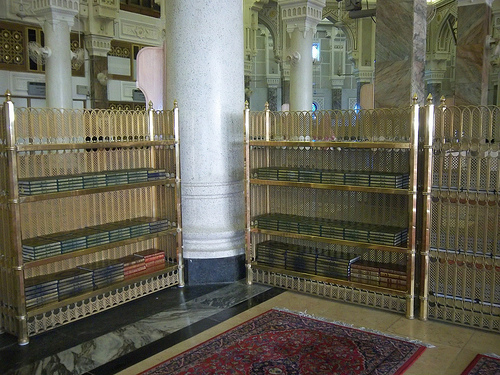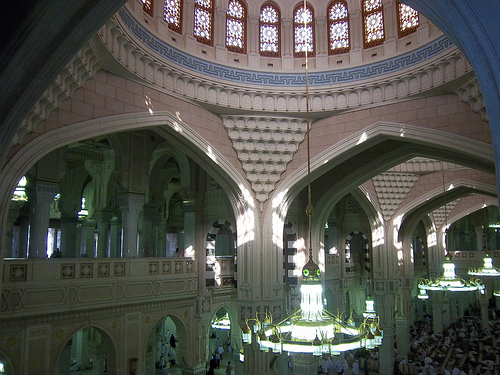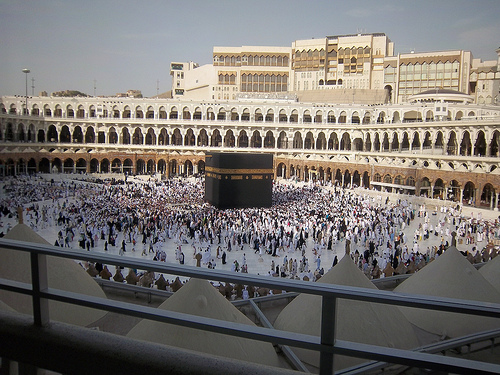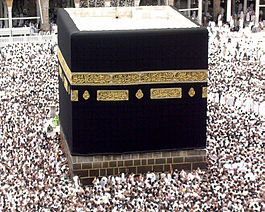Introduction
The Greek architects were the designers of the early buildings in the Islamic empire. The buildings had to be the works of the Greek architects, they resembled the buildings in the late Roman Empire. Because they were building the mosques, unlike the churches, the Greek architects saw the need to try out some new designs. This contributed to the rise of different models of Islamic style of constructions.
This paper seeks to explore Islamic architecture with special attention to Al-Masjid Al-Haram. The report begins with the significance of Ka’aba to Muslims. It also explores a brief history of the characteristics of Islamic architectures, with special emphasis on Makka and Masjid Al-Haram. Al-Masjid al-Haram is considered one of the largest mosques in the world.
The report describes its architectural design and major renovations which have taken place since it was constructed. Ka’aba plays a significant role in the spirituality of every Muslim. It is a cube-shaped structure that is about forty-three feet high. The report describes Ka’ba architecture and gives its historical link between the graves of prophet Ismail and his mother Hajar.
Significance of Ka’aba to Islam
Ka’aba, besides its architectural designs, is significant to every Muslim believer. The Muslims who proceed to the area around Mecca must undergo a ritual cleansing and wear a special white robe (Hankin, 2003). The pilgrimage starts with a procession (tawaf) around the Ka’aba seven times in the anti-clockwise direction as viewed from above (Mubarakpuri, 2002).
In the south-eastern side of the Ka’aba, there is a sacred black stone mounted in silver. It is around 11 inches wide and 15 inches high. Muslims believe that this stone was sent from heaven by Allah and is considered highly sacred. Because of the numerous numbers of Muslim faithful crowding into Ka’aba at any given time, it is almost impossible to get close to the stone and kiss it (Mubarakpuri, 2002).
History
General Characteristics of Islamic Architectures
According to Mubarakpuri (2002), the Islamic systems of architecture are mirrored byzantine and Sassanid models. The effects of these models inspired the architects of the time hence it contributed to the building of similar models such as the; dome of the rock in Jerusalem. The dome of the rock is adorned with arabesque patterns and the great epigraphic frieze. Architectural concepts and plans are enhanced by embracing the advice of civic and religious leaders.
Islamic architectural styles are unique. They encompass camouflaged walls of most mosques and Madrasa. The principle involved is the application of infinite patterns on the surfaces of any medium. The final architectural work involves superimposing elements, which tricks the eye into an illusion of the image. The architecture was enhanced by using decorative works. Tiles and plaster decorations were commonly used to cover up solid walls of Mosques and Madrasa while arches and vaults were camouflaged with epigraphic and floral decorations. Infinite patterns of radiating designs were put into a dome which reduces the solidity of masonry and stone.
Makka
Makkah is located east of the port of Jedda. It is about 45 miles east of the red sea. Makkah is known to many people as Mecca. Makkah is considered the mother of the cities and a holy place in the Islamic world. Muhammad, the founder of the Muslim faith was born here in 570. Within this Great Mosque, there is a shrine named Ka’aba (Mubarakpuri, 2002).
There are also considered to be the holiest shrines of Islam. Devoted Muslims throughout the world pray five times a day, and when they pray, they bow down facing Mecca. Those who can afford it take a tour to the holy city of Mecca once in their lifetime. This is referred to as a Hajj. It is done during the Muslim month of Dhu-al-Hijah (Hankin, 2003).
Discussion
Masjid Al-Haram Architecture
According to The Message of Islam (2011), Al-Masjid al-Haram is the largest mosque in the world, and it is in Mecca. Al-Masjid al-Haram covers an area of 356,800 square meters and has a capacity to hold 4 million people during Haji period (Baz, 1996). The Al-Masjid al-Haram mosque was destroyed by a flood and was rebuilt by Ibrahim and his son Ismail.
A large number of travelers to Mecca contributed to a complete rebuild of the Al-Masjid al-Haram. Therefore, the wooden columns were substituted with stonework decorations. The oldest surviving parts of the building are the support columns placed by Sultan Selim II in 1570 and decorated domes that replaced the flat roof (The Message of Islam, 2011). In the 1620s, the mosque was reconstructed.
The second major renovations were done from 1982-to 1988 under King Fahd. A new outdoor prayer area and a new wing were built. The third extension saw a more prayer area constructed around the mosque and a King’s residence overlooking the mosque created 18 gates, 500 marbles columns, heated floors, air conditioners, escalators were part of the third extension. This was done between the years 1982 and 1988. The fourth extension started after the death of King Fahd in 2007 and is expected to last until 2020.



Ka’aba Architecture
Ka’aba structure is enclosed in the mosque in Mecca, and it is here that Muslims come for the journey (Haj). Around Mecca, there is a blessed zone where only Muslims are allowed to step in. This is a stonework cube-shaped structure that is about 43 feet high. Its sides are regular with a length of between 36 to 43 feet. This structure is covered in a black cloth called Kiswah which has Quran text sewed in gold and silver thread (The Message of Islam, 2011).
The gold curtain (Kiswah) is replaced annually during the Hajj. The entrance into the Ka’aba is a 2-meter gold door. Inside, the Ka’aba floor is made of marble and limestone and the walls are made of marble on it are Qur’anic engravings. Outside the Ka’aba is a semi-circular wall that is 90cm high and 1.5 m wide (The Message of Islam, 2011). It is believed that the gap between this wall and the Ka’aba is the graves of prophet Ismail and his mother Hajar.

Conclusion
Islamic architecture derives its style from the foundation of Islam and shows a wide range of both religious and secular styles. These styles are expressed in different edifices and buildings thus representing the unique Islamic culture. Different styles of decorations have played a part in ornamenting mosques.
Makkah is a very significant city to the Muslim faith. Perhaps, this is the reason why a strong Muslim believer has to undertake a pilgrimage to the city once in his or her lifetime. The architecture of Makka has stood as one of the unique in the Islamic world. This is attributed to the style; design and construction process accorded. The architecture is characterized by strong Islamic tradition which has dictated its construction and subsequent renovation over the ages. Makkah has continued to carry on with the traditional practices of Islam. This is seen through various religious practices and rituals.
References List
Baz, A. A. A. (1996). Verifying & Explaining Many Matters of Hajj. Riyadh: Darussalam Publishers.
Hankin, R. (2003). Makkah. London: Evans Brothers.
Mubarakpuri, S. R. (2002). History of Makkah. Riyadh. Darussalam Publishers.
Student of the Quran. (2011). Al-Masjid Al-Haram in Mecca. Web.
The Message of Islam. (2011). The Kaaba as a Place of Worship in History. Web.